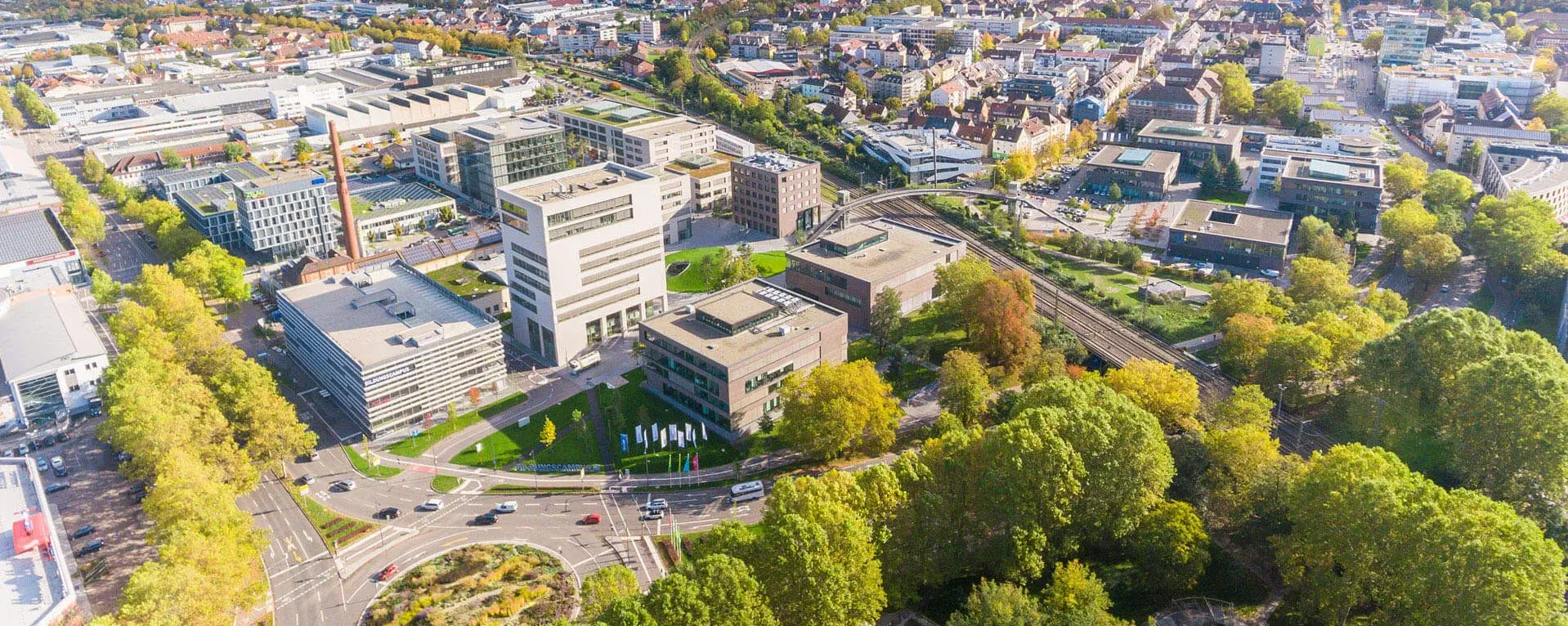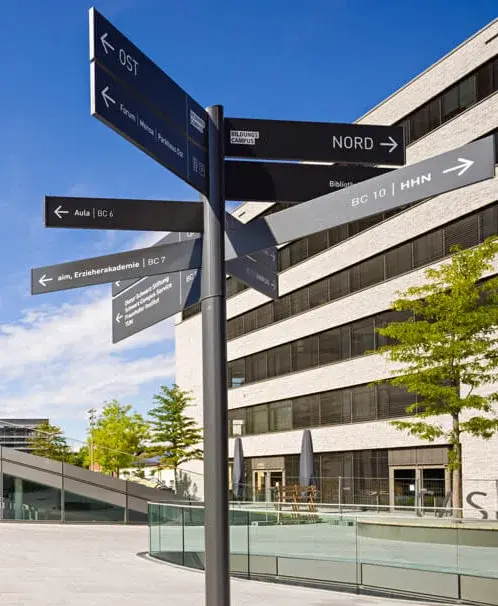
The renowned Technical University of Munich has been present in Heilbronn with educational offerings since the fall of 2018. At the state-of-the-art Bildungscampus of the Dieter Schwarz Foundation, excellence in research and teaching meets the exciting, entrepreneurial challenges in one of Germany’s most innovative regions.
The primary focus is on managing digital transformation in the field of family businesses and information technology. Research and teaching aim to bridge the gap between business and engineering sciences and information engineering in a dynamic, international environment.
This opens up new research fields – for example, related to digital transformation and platform economy, which are used both in the innovative companies of the Heilbronn-Franconia region and worldwide.
TUM Campus Heilbronn now offers five degree programs: one Bachelor’s and two Master’s programs from the TUM School of Management, as well as a Bachelor’s and Master’s in Information Engineering from the School of Computation, Information and Technology. More about our study programs.
Within the framework of Continuing Education, customized courses can be booked on a part-time basis. TUM Heilbronn Campus offers excellent opportunities in all phases of academic education, from the first semester to a professorship.

The Bildungscampus (educational campus) in the heart of Heilbronn provides employees and students with first-class conditions for research and teaching and also offers a unique quality of living. The learning groups are small, and all courses are taught in English. The major part of the more than 1000 students come from abroad and find an international flair at the TUM Campus Heilbronn that is unparalleled in Germany and Europe.
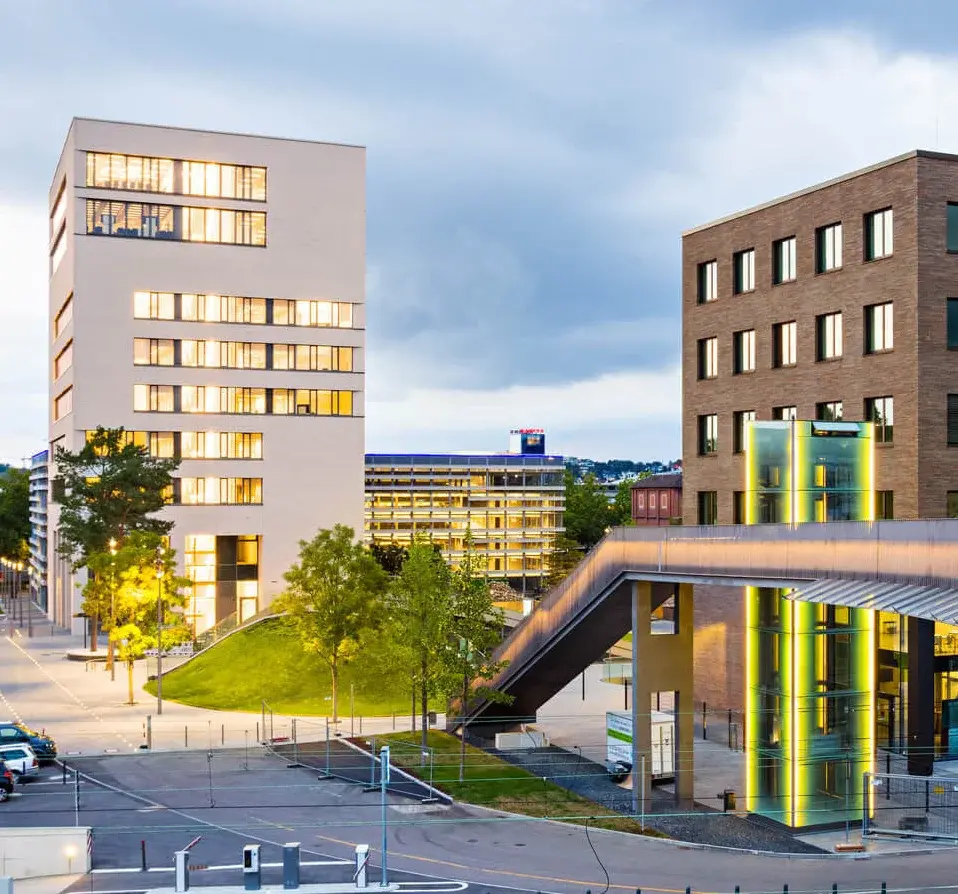
“Digital transformation, information engineering, and family businesses” – these are the areas on which TUM is focusing its research at the Heilbronn Campus. The aim is to enable integrated, interdisciplinary research and to cover the teaching required for the degree programs. At the Center for Digital Transformation (CDT), researchers address issues of digitalization and its challenges and opportunities. Practice-oriented research is used to develop solutions that generate direct added value for business and society. The CDT provides the scientific basis for a fundamental transformation of the economy. Business models, internal processes, and management styles are changing due to the increasing use of technology. TUM Campus Heilbronn is all about practice-oriented research that navigates companies and employees through the transformation. Insights from practice are incorporated into teaching – preparing students for the business world of tomorrow.
The Global Center for Family Enterprise (GCFE) is unique in its content focus. The broad range of topics focuses on succession, strategy, innovation, and governance in family businesses. At its core is interdisciplinary research on family businesses and medium-sized enterprises. The business perspective on medium-sized companies is supplemented by psychological and sociological perspectives to fully cover this special form of organization.
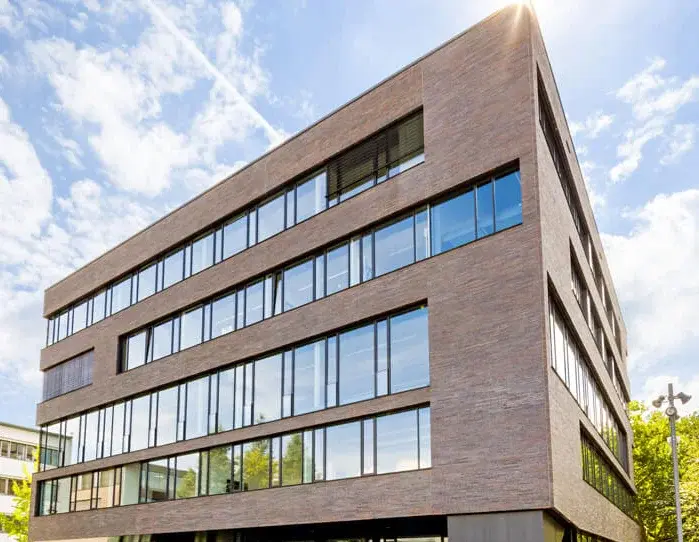
The focus of the Center for Informatics (CIN) is on Information Engineering. Information Engineering considers the entire chain of informatics, from the sensor to the business model, and thus forms a significant element of digital transformation. New digital technologies are creating more and more opportunities to capture, network, and analyze information. In order to take advantage of opportunities such as the introduction of intelligent products, research and training are needed around the planning and realization of networked, end-to-end IT systems. This is precisely where the Center for Informatics (CIN) comes in: “In this way, we can bundle our research even better and generate valuable synergies,” says Prof. Dr. Helmut Krcmar, founding dean and representative of the president for the TUM Heilbronn Campus. The centers will also serve as a platform for exchange, both within the research community and for stakeholders from business and society. “In addition to research and our students, companies should also benefit from the new insights we gain here,” Krcmar continues.
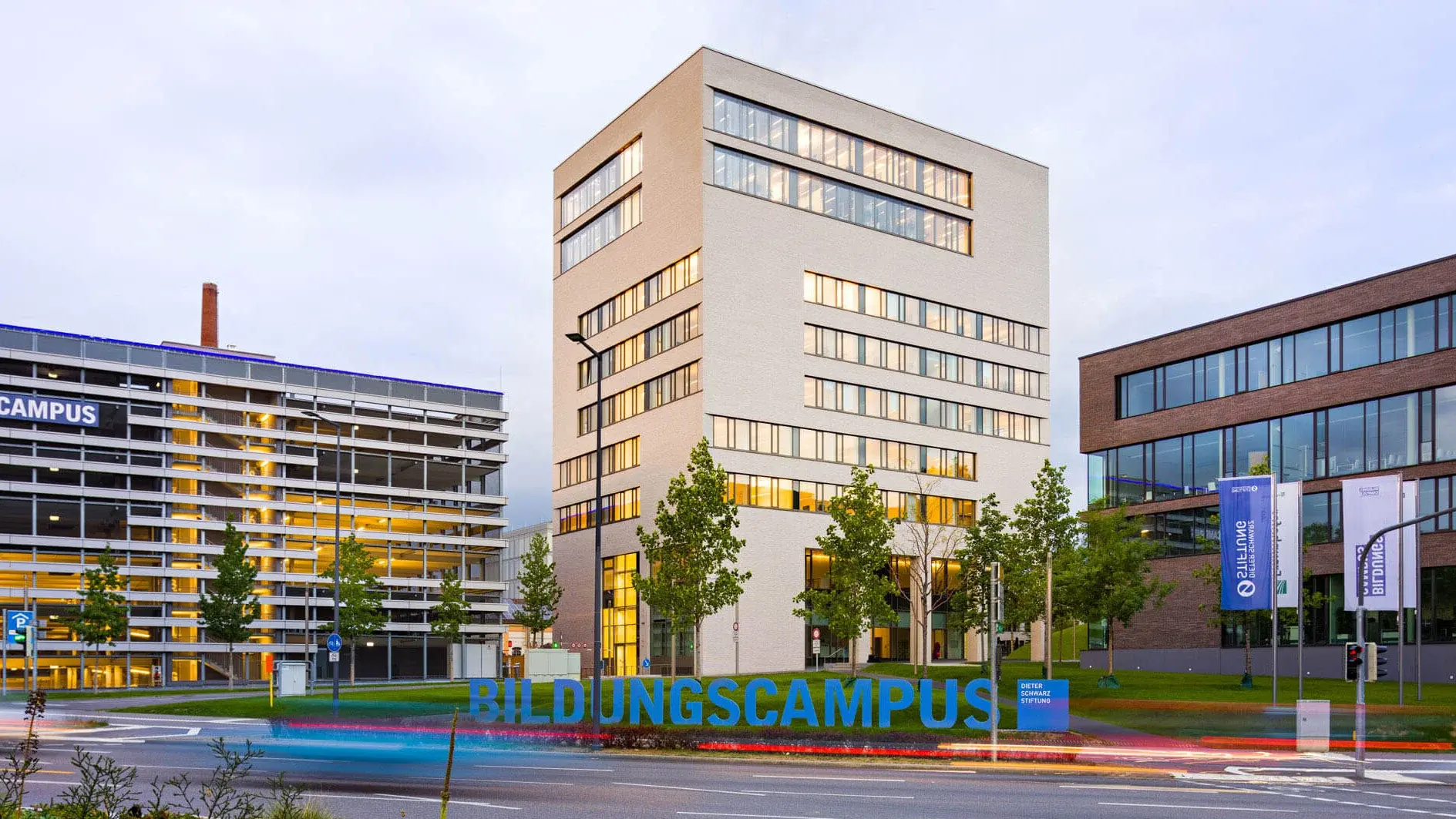
In the Heilbronn-Franconia region, TUM sees itself as a civic university in a campus ecosystem that empowers students, researchers, companies, and local stakeholders to positively shape the digital transformation. One important concern is to link excellence in research at TUM at the Heilbronn campus in the best possible way with the secrets of the success of medium-sized businesses in the region and beyond.
Yet another aspect is the connection of the TUM Campus Heilbronn to international partner universities of global reputation – for example, with a focus on human-centric AI at the interface of management, technology, and computer science. Here, the TUM Campus Heilbronn cooperates, among others, with the HEC Paris, the Oxford Internet Institute, the Hebrew University of Jerusalem and the ETH Zurich. In 2023, TUM Campus Heilbronn plans to add a Data Science Center and enter into additional partnerships with leading universities.

Vice President TUM Campus Heilbronn
TUM Board of Management
Professorship for Information Infrastructures
TUM School of Computation, Information and Technology
TUM School of Management
Curriculum Vitae
Since 2024:
Technical University of Munich (TUM)
Vice President TUM Campus HeilbronnTUM Board of Management
Professorship for Information Infrastructures
TUM School of Computation, Information and Technology (CIT)
TUM School of Management (MGT)
- 2018 - 2024:
Director of the Institute of Applied Informatics and Formal Description Methods (AIFB) and Professor at the Karlsruhe Institute of Technology (KIT) - 2016 - 2018:
Professor at the University of Kassel - 2010 - 2016:
Professor at the University of Cologne - 2010:
Ph.D. in Information Systems - Technical University of Munich - 2005:
Master's degree (diploma) in Computer Science - Technical University of Munich
Honorary Positions
- Member of the Scientific Council
German Research Foundation (DFG) - Board of Directors
German Informatics Society (GI) - AIS Distinguished Member - Cum Laude
Association for Information Systems (AIS) - Scientific Committee Member
ETH Library Lab, ETH Zurich - Advisory Council
Fraunhofer Blockchain Center - Board Member
Scientific advisory council, Fujitsu NEXT e.V.
